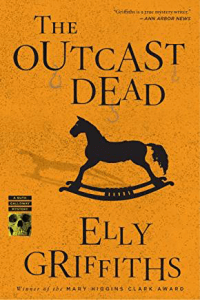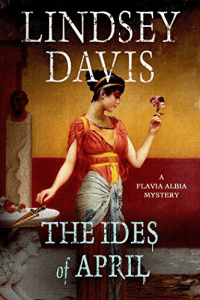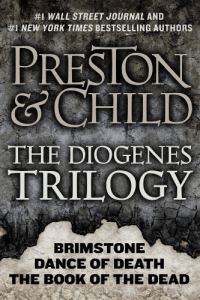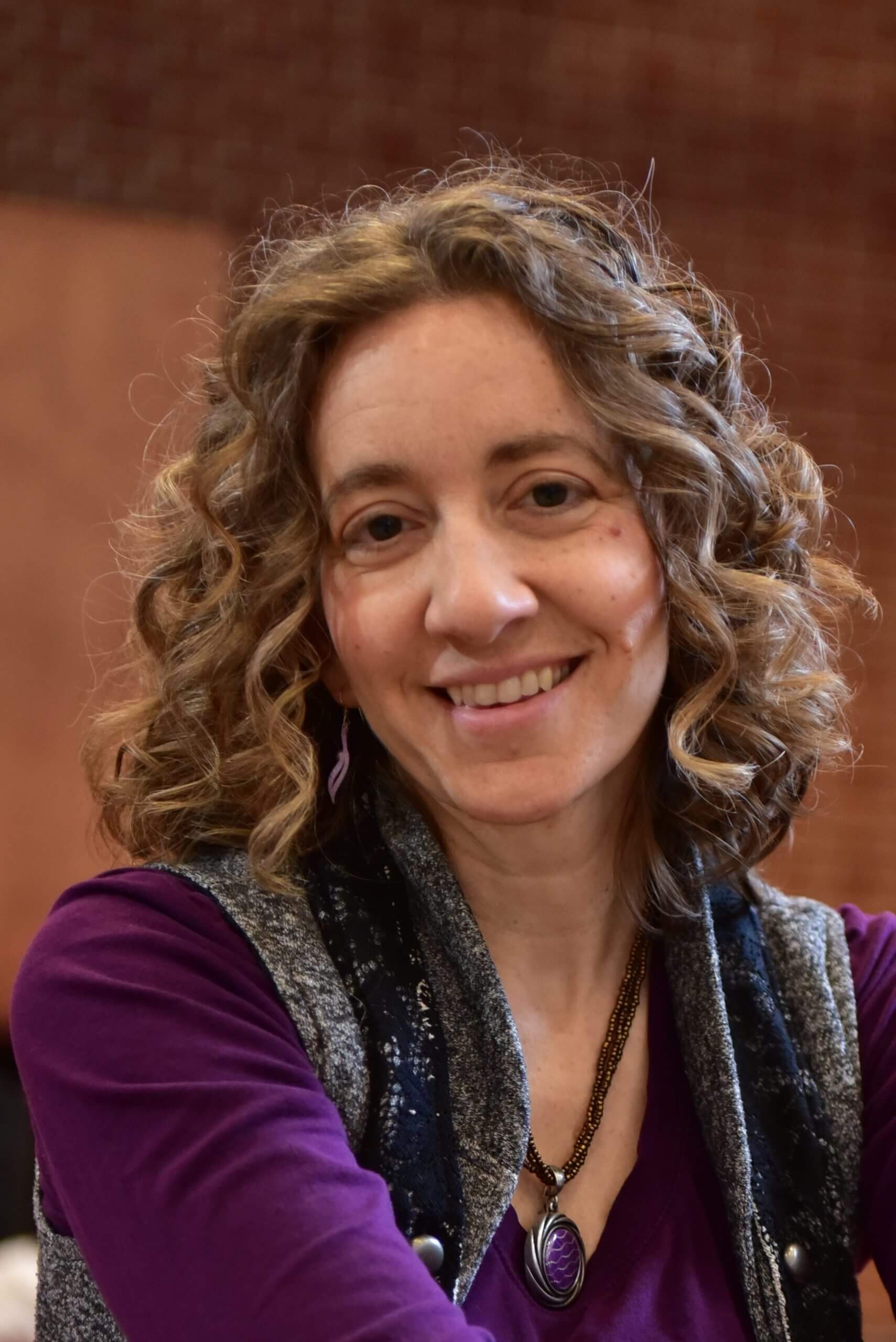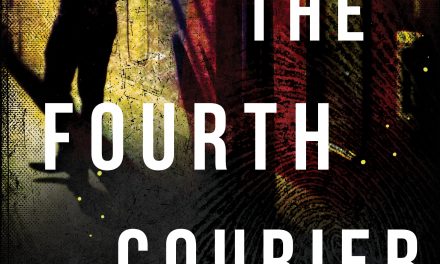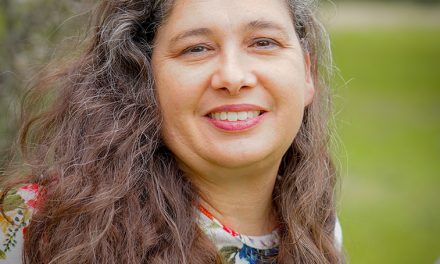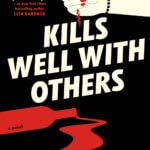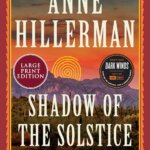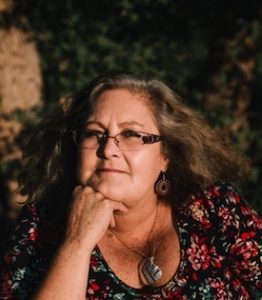
Photo by Leah Grace Englehart
Today I have the privilege of speaking with Carol Potenza. She’s written a mystery, Hearts of the Missing, that carries on the grand tradition of Western mysteries of such authors as Tony Hillerman and his daughter, Anne Hillerman. Appropriately, Hearts of the Missing, her debut novel, won the 2017 Tony Hillerman Prize. Carol is an Assistant Professor of Chemistry and Biochemistry at New Mexico State University. She and her husband, Jose, live in Las Cruces, New Mexico.
SS: Welcome, Carol. Have you always been driven to write? Or did you begin writing in response to a particular stimulus?
CP: I received a Kindle as a Christmas present a few years back and that opened up so many books and it was wonderful. But after a while (this was early in the Amazon years, before too much self-pub), I’d pretty much exhausted all the books in the genre I liked, so I thought, why not write a books that I’d chose to read. It should only take a few years to learn (ha) how to write fiction. Besides, maybe I could earn a little money when I retired by writing and self-publishing books. I entered the third book I wrote into a prize at St. Martin’s Press/minotaur, and won a publishing contest—the Tony Hillerman Prize.
SS: Do you have a day job? If so, is it a distraction, or does it add another element to your writing?
CP: I’m an instructor at New Mexico State University in biochemistry. No more research. That’s one of the reasons I started writing. I was bored. The research took up so much time and brain-space. I teach two semesters a year and have summers off. Although I’ve adapted to both teaching and writing, the day job is a distraction sometimes. However, I find that I’m more organized during the school year because of it. My day job (and scientific career) also allow me to keep up on biomedical research—we have a wonderful lecture series and bring in researcher doing cutting edge work. I use the science in my books.
SS: What part do your own fears play in your fiction?
CP: They play a major role. At my age, I’ve figured out some of my fears and wounds, and my characters definitely contract them, almost like a disease. I do Story Genius 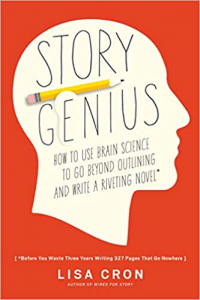
SS: Do you read your book reviews? How do you deal with bad or good ones?
CP: NOPE.
SS: What literary pilgrimages have you made?
CP: Ha ha! The only one I have made is to the New York Museum of Natural History because Douglas Preston and Lincoln Child started their writing careers there, and as soon as I started writing, my goal was to write books like them. I still want a behind-the-scenes tour of the museum so I can explore the sub-sub-basements.
SS: What are you working on at the moment?
CP: The third book in the Nicky Matthews Mysteries. The first book was chosen as the Hillerman Prize. I originally had four books in mind for the series, each encompassing one of the major family clans in my fictional tribe. Hearts of the Missing = earth; The Third Warrior = fire; Spirit Daughters = water; and The Boy Who Played it the Wind = sky.
SS: That’s such a nice way to organize the series. At what point did you come up with your
title? Did your publisher change it?
CP: The original title for Hearts of the Missing was Spirit’s Heart. I named it after a pendant of great importance in the book. My first editor though the title was ‘too romancy’. Hearts of the Missing Still Beat was the title of a presentation from a missing college student, so we went with a shorter version of that.
SS: Do you believe you write the kind of book you’d want to read?
CP: Definitely, yes.
SS: Must you lay empathy and pity to one side to write crime fiction effectively?
CP: Absolutely not. A villain can’t just spring out of the top of your head. He/she has to have wounds and reasons for their actions just as much as the heroes/protagonists do. As an author, you are walking that edge of ‘what would I have done under the same situations my villain was exposed to?’, then flip them to the dark side. Some things they do are irredeemable, but that doesn’t mean you can’t feel a great deal of sympathy for them. In Raiders of the Lost Ark, I have always loved the line Belloq says to Indy in the marketplace:
“You and I are very much alike. … I am but a shadowy reflection of you. It would take only a nudge to make you like me. To push you out of the light.”
That’s how I try to write my protagonists and villains.
SS: I recently rewatched the entire Indiana Jones series. I found a new relevance—perhaps due to my age—to Sean Connery as Indie’s bumbling father. Val McDermid (A Place of Execution) consults with a forensic scientist. What lengths do you go to make sure you get the science right?
CP: First, I have a Ph.D. in Biomedical Sciences and was a genetic engineer, so I’m not afraid to read primary literature about the science for both the police work in the crimes and the science in my plot, especially about DNA. Second, my husband is a physician, my daughter is in an MD/PhD program, I have three nurses in the family, as well as a sister who holds an MS in environmental sciences, so it’s easy to ask things like ‘what vertebrate would be affected if a throat was cut too deeply?’ or ‘how long would a harvested internal organ last outside the body before transplantation’? My daughter worked with a transplant surgeon and has a great story about holding a liver as the great vessels were reattached and how the tissue went from ice-cold to warm and pulsing. Amazing. For my police procedural, I have a sister-in-law who’s a cop and a great source, as well as a brother-in-law who worked probation/parole. We playacted a scene where my protagonist had to take away a gun for my second book. It made the action so much easier to write. They have friends and contacts in the DEA and FBI, and one of our Border Patrol friends is a drug-dog handler who has trained dogs to sniff out ivory in Africa. Third, I have so many contacts through New Mexico State, for example, a scientist who is doing research on defunct open pit uranium mines and whether the dust/dirt blown from these mines is having a downwind effect of people will be a great source for my ‘air’ clan book. If I don’t know, I know someone who does, or who can point me to a source.
SS: Violence is often part and parcel of mysteries and crime fiction. I quit reading Patricia Cornwell’s Kay Scarpetta series when the crimes she described got so bizarre I couldn’t sleep after reading one of her novels. Where do you feel the line needs to be drawn when describing the violence taking place?
CP: I absolutely think that decision should be made by the author or author/editor. It is my decision as a reader whether or not I will read the book based on the elements contained within. For example, I, myself, don’t like high levels of profanity in a novel or movie—just my personal preference—because it distracts me from the story. I’ve made a conscious decision to use, for instance, F-bombs sparingly (I think I limit myself to three) in my books. I’ve heard in police procedural, there tends to be a lot of profanity (read Joseph Wambaugh). I choose not to do that.
SS: Who are your favorite authors in your genre?
CP: Douglas Preston and Lincoln Child (Pendergast series—an indestructible FBI agent with lots of paranormal elements). To tell the truth, I decided to write books like theirs, but set in the Southwest with murders, science, and paranormal; Elly Griffiths (Ruth Galloway series—forensic anthropologist/police procedural); Lindsey Davis (Flavia Albia series set in Ancient Rome); Kelley Armstrong (
SS: I much prefer series in which each book is resolved fairly completely, but the characters and setting persist and tie the books together. Carol, what’s the first book you read that made you think, “I’ve got to write something like this someday!”

SS: What prompted your interest in writing paranormal stories?
CP: TRUE ghost stories told to me by a sister-in-law that works as a police officer on a New Mexican Pueblo. Three of the five siblings on my husband’s side of the family are ‘sensitive’. They tell the BEST ghost stories because they see and experience them. I wanted to use these experiences as part of my stories. Since Hearts of the Missing was published, I’ve had a number of Native American friends relate supernatural stories and experiences that I’m weaving into my books. I love that flesh crawling chill when I read something scary, so I was determined to incorporated that into my writing.
LIGHTNING ROUND:
Describe your books in three words: Mystery, science, paranormal
Favorite thing about your genre? Weaving together the clues and red herrings
Another genre you would love to write: Medieval romance
When writing, are you a night owl or morning person? Morning
Pantser or Plotter? Yes
Book you’re currently reading: Elly Griffiths: Ruth Galloway series, The Outcast Dead
Your favorite guilty pleasure: Home all day alone to write and not doing ANY chores
Number one book boyfriend or girlfriend is: Tiberius Manlius Faustus from the Flavia Albia series by Lindsey Davis
Your favorite villain or serial killer is: Diogenes Pendergast
Your favorite detective or spy protagonist: Aloysius Pendergast or Columbo
Your favorite thriller or mystery movie? Taken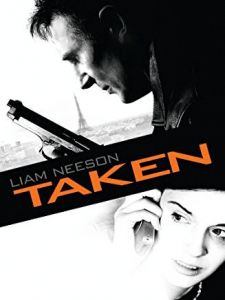
********************
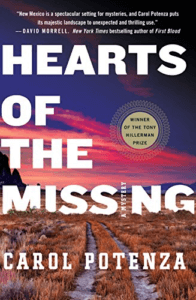
Amazon | B&N | Books-a-Million | Apple | Indiebound
An excerpt from Hearts of the Missing:
Silence fell as tension stretched between them. The breeze was back, lifting the hairs on Nicky’s arms. She rubbed them down, even as the wind swirled around her head and wrapped her hair across her throat. She gathered it in her hand to flip over her shoulder, and blinked, taken aback.
Ryan stared at her, then looked up at the wind chimes dangling from the patio trellis. She followed his gaze.
“I believe there is more to this world than our minds recognize.” There was an odd catch to his voice, a hint of uncertainty. Nicky’s brows knit, puzzled by his statement.
“So you say, Ryan. But you’ve never seen a vision or a face or a ghost, have you?” Savannah said.
“I don’t know,” he replied simply. “Ghosts, spirits, visions could be all around us, but appear as a man in a crowd or a bird in a tree. They might be standing right beside you, but because they’re so . . . familiar, you never think to ask someone else if they are really there, you know?” He gestured to Nicky with his chin. “But if a spirit visits you and lets you see them—knowthem—that’s an honor, even a privilege.”
Savannah glared at him for the beat of a few seconds before shelevered herself up and marched to the screen door. She slid it open, and closed it behind her with a snap. Light from the kitchen shattered the darkness and made Nicky blink as her eyes adjusted.
It was her friend’s way of ending the conversation, but Nicky had more questions. She dropped her feet to the cement, leaned forward, and wrapped her arms around her middle.
“The rabbit, Ryan. What about the rabbit?” She kept her voice low out of respect for Savannah.
“It represents the underworld. And in Fire-Sky culture, white represents death.”
The wind picked up again, scratching dried leaves across the cement. Nicky shivered. “So . . .”
“So, I don’t think you will be saving the living this time. The running rabbit symbolizes a restless spirit. Whoever Wind Mother wants you to rescue is either already dead or will be soon.” His voice was strangely adamant.
Dead? A sudden coldness filled her. She didn’t want to believe him. It was her job toprotect the pueblo and its people, even at the risk of her own life. But deep inside, she knew what he said held truth.
NB: You can see my review of Hearts of the Missing here at SuanneSchaferAuthor.com
********************
Carol can be found on social media here:
Website | Facebook | Twitter | Goodreads | BookBub

